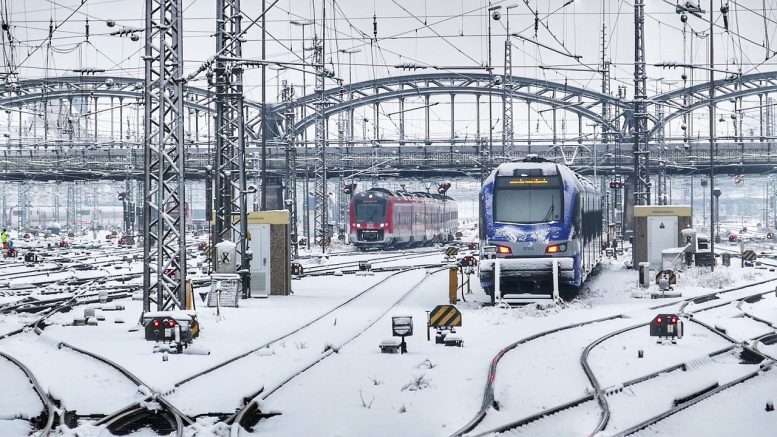Every Londoner has some point in their life experienced the Monday madness on the underground. Long queues to tap-in, watching three tubes go by before you can even see the yellow line, shuffling along the platform like a penguin to the exit – the list of annoyances is endless.
In January 2018, rail fares jumped by 3.2%. Regular commuters can spend up to hundreds or thousands on train tickets and travel cards but how much value do they actually get for their money?
Why is it so expensive to travel in London and not the rest of Europe? @MayorofLondon @TfL
— Jeau’ (@JeaulinaCato) January 20, 2016
Particularly since winter is coming. The UK was subjected to harsh weather conditions earlier in the year, which subsequently saw a surge in train cancellations. Network Rail said normal services were cut to “allow engineers to focus on keeping the main parts of the rail network open. Compacted snow can turn into solid ice and prevent points – which direct trains from one track to another – from working”, via BBC. During the summer, 2018 saw the hottest temperatures since the 70s, it could quite possibly mean this winter will be extremely cold too.
Some of the UK press is squealing about bitterly-cold weather this week, which turns out to be relying on high-quality rail transport to arrive, probably Crossrail…
— Wolf Baginski💙 (@WolfBaginski) December 10, 2018
@Se_Railway Poor rail conditions….like we never get frost or cold weather in uk….your service is a joke….more like start of half term
— CM1970 (@Chickmonk1970) February 12, 2016
There has been a 50 per cent increase in the number of trains that are being cancelled or significantly late since 2010, Labour has said. Overcrowding has also risen by more than 25 per cent on the top 10 packed peak-time routes. London – of course being the worst contender – suffers 5.4 per cent overcrowding in the AM and 2.7 per cent during PM hours.
Some of the worst operators for punctuality include; Virgin West Coast, Grand Central, Govia Thameslink, Virgin East Coast and First Hull Trains (Network Rail figures for year ending April 2018, via BBC).
Again I find myself aghast at UK rail travel expense. If my car was in Birmingham I could diesel-guzzle to Nottingham for about £5 all in; by train (no bus/taxi elements), £41.70 (booked in advance). For that price in Italy I could have a luxury express journey Rome-Venice.
— Diana Spencer 🇪🇺🇮🇪 (@DianaJSpencer) December 9, 2018
As well as cancellations on train lines increasing, the number of people actually using public transport is also increasing. Since 1994, the total number of passengers has increased by 135% – making trains a lot busier since privatisation.
Most expensive commuter travel IN THE WORLD and you STILL run a TERRIBLE service most days!! #TFL
— Lauren Samuels (@Laurensamuels88) January 3, 2012
Labour brands the train industries cancellations and overcrowding as “Tory rail mayhem.” Corbyn believes there needs to be renationalisation for the railways, “the rail chaos unleashed by the Tories on the North of England shows their utter disregard for people living in the towns in the North.”
In light of the Luxembourg agenda to make public transportation free for all (the first country in the world to do so), the UK may want to reflect on the privatisation of our railways and the high-costs that civilians pay to commute.
This European country will be the first to launch a completely free public transit system. A traffic-tackling solution. #europe #luxembourg #transport #society #free #travel pic.twitter.com/zEIwQjT6us
— 𝕊𝕒𝕞𝕦𝕖𝕝 𝕆𝕦𝕘𝕒 (@Ougasam) December 10, 2018
Words by Megan Naylor / Subbing by Memuna Konteh
Featured image by Holzijue via Pixabay

